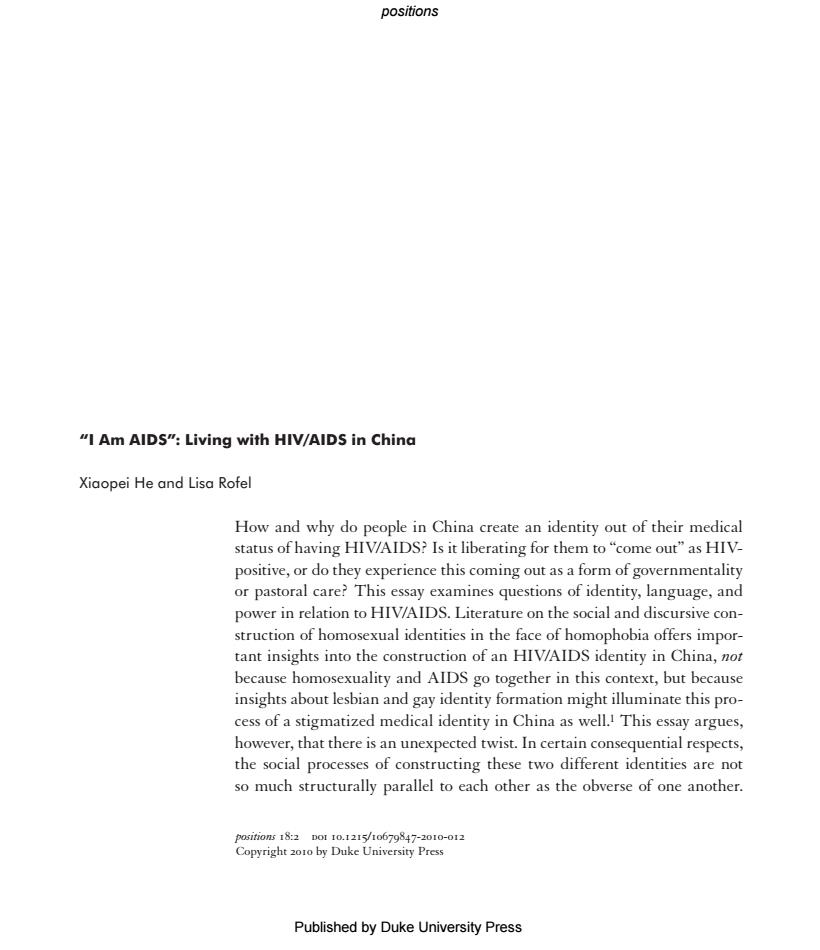正在加载图片...

positions "I Am AIDS":Living with HIV/AIDS in China Xiaopei He and Lisa Rofel How and why do people in China create an identity out of their medical status of having HIV/AIDS?Is it liberating for them to"come out"as HIV- positive,or do they experience this coming out as a form of governmentality or pastoral care?This essay examines questions of identity,language,and power in relation to HIV/AIDS.Literature on the social and discursive con- struction of homosexual identities in the face of homophobia offers impor- tant insights into the construction of an HIV/AIDS identity in China,not because homosexuality and AIDS go together in this context,but because insights about lesbian and gay identity formation might illuminate this pro- cess of a stigmatized medical identity in China as well.This essay argues, however,that there is an unexpected twist.In certain consequential respects, the social processes of constructing these two different identities are not so much structurally parallel to each other as the obverse of one another. positions18:2Do110.1215/1o679847-2010-012 Copyright 201o by Duke University Press Published by Duke University Press“I Am AIDS”: Living with HIV/AIDS in China Xiaopei He and Lisa Rofel How and why do people in China create an identity out of their medical status of having HIV/AIDS? Is it liberating for them to “come out” as HIVpositive, or do they experience this coming out as a form of governmentality or pastoral care? This essay examines questions of identity, language, and power in relation to HIV/AIDS. Literature on the social and discursive construction of homosexual identities in the face of homophobia offers important insights into the construction of an HIV/AIDS identity in China, not because homosexuality and AIDS go together in this context, but because insights about lesbian and gay identity formation might illuminate this process of a stigmatized medical identity in China as well.1 This essay argues, however, that there is an unexpected twist. In certain consequential respects, the social processes of constructing these two different identities are not so much structurally parallel to each other as the obverse of one another. positions 18:2 doi 10.1215/10679847-2010-012 Copyright 2010 by Duke University Press positions Published by Duke University Press